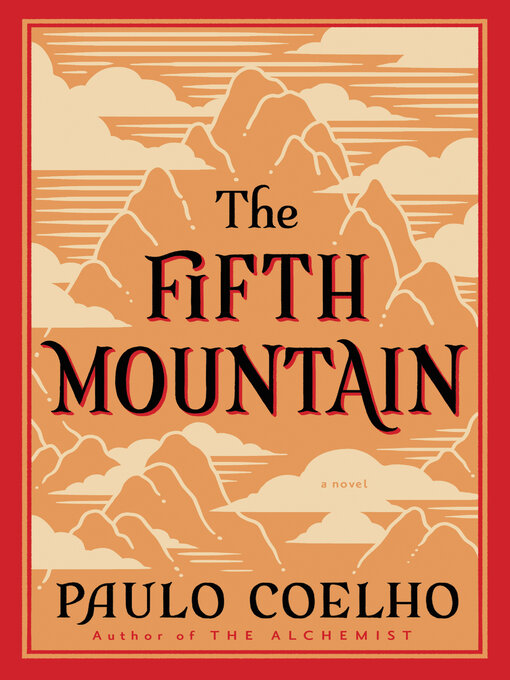Monday, July 05, 2004
Woke up today feeling utterly sick but forced myself to get up because first there was the Lcomm pre-lab assignment to hand in by 10am and also the crim pro write up which is due today at 5pm. argh contemplating of going to the doctor, yet to decide, if by the end of today nothing goes wrong i dont think i would go.
oh and i did i mention the other day i got a jab in my arm not sure for what and it still hurts.. painful reminder.. something i do not need...
Anyway... Greece won! woohoo! i knew it. Told amin and izhary that Greece will win but dont believe me.. see told you so, hello with a good player like Angelos Charisteas and a great defence team of course greece would win... haha... *does victory dance* =P
anyways below is an extract from yesterday's Sunday times that i wanna share with you guys...
:||:||:||:||:||:||:||:||:||:||:||:||:||:||:||:||:||:
ONE PEOPLE... ONE NATION... BUT...
Are we one class?
Talking about class should no longer be taboo, if NUS sociologist Tan Ern Ser has his way. In a book just out, he sheds some light on this complex subject. Susan Long reports.
BANKING officer Alex Tan, 25, has a ritual he performs every working day at the end of his drive from his Hougang flat to his Shenton Way office. After parking his Toyota, he pauses to peel the HDB carpark label off his windscreen before putting on his tie.
Forgetting, he says with a shudder, would mean betraying his heartlander roots, and he 'can't afford that'.
Such is the contradiction that is Singapore society. It is built along meritocratic - and hence theoretically classless - lines, but there are those among it who are class-conscious to the extent that where you go to school, what kind of house you live in and what car you drive are all studied assiduously as reflections of the 'class' you belong to.
To adapt the National Day tagline, is Singapore 'one people, one nation, one class' - and that's the middle class - or is it a crassly class-conscious country?
NUS don Tan Ern Ser
To get to the bottom of this class issue - a conundrum with many conjectures but little data - sociology don Tan Ern Ser from the National University of Singapore (NUS) decided to commission a survey. Started in 2001 and published as a book last month, the study covered 2,250 Singaporeans, aged 15 to 64, from all races and living in all housing types.
Minefield of class
THE aim of the associate professor who teaches a course on social stratification: To map out Singapore's class structure and its relationship with aspects of socio-political life here, like welfarism, political participation, national pride, success values, unionism and social mobility.
The last major survey on social class in Singapore, headed by sociologist Stella Quah, was done in 1991, using data culled in 1983. The absence of any major study since leads some sociologists to say that there seems to have been 'a national complicit pact' to sidestep the minefield of class here.
Not that Singapore society would be the only one reluctant to talk about class. Most contemporary societies around the world are. Class became passe with the resounding defeat of Marxism as a form of political organisation in recent decades.
As Dr Tan notes in his book, Does Class Matter?, a class society is, by Marxian definition, one characterised by class conflict, tension and struggle, and possibly eventual transformation into a socialist society.
Ideologically, the class perspective sits uncomfortably with nation-building in a capitalist economy 'as class inequality must somehow be reconciled with national solidarity and unity'.
Besides the reek of revolution, class also carries the hint of a danger of divisiveness.
A memorable quote on class conflict comes from American academics Richard Sennett and Jonathan Cobb, who note in their book, The Hidden Injuries Of Class: 'Class is like a fur coat - soft and warm to wrap around you if you have it, a constant goad and affront if you're one of those left out in the cold.'
In the local context, as Associate Professor Kwok Kian Woon, who heads Nanyang Technological University's sociology department, notes: 'Class matters to the extent that people in lower classes experience forms of social exclusion.'
So, rather than risk riling those without fur coats, Singapore's policy-makers and political leaders have long used polite euphemisms.
Hence, not the 'poor', but the 'lower-income groups'. There's a divide, not between classes, but between the 'haves' and the 'have-nots'.
And society at large has also 'conveniently forgotten' how to talk about class, says Mr Low Kee Hong, associate artistic director of TheatreWorks and a former sociology lecturer at NUS. Class, in effect, has been engineered out of the Singaporean vocabulary.
He takes the charge one step further, arguing that Singaporeans have been 'segregated at birth into ethnic groups and conditioned to think of class problems as community problems'.
'Our language for comparison with each other revolves around ethnicity, education levels and income groups, but not class, which cuts much deeper. It's obvious that our social engineering has been very successful,' he says.
Proxy of progress
AS FAR back as 1975, a sociologist at the University of Singapore, Peter Chen, argued in a paper on growth and income distribution, that judging from data on social mobility, Singapore had already attained 'middle-class' status.
In 1987, that label rose to prominence again when then prime minister Lee Kuan Yew declared Singapore a 'middle-class society', based on the criterion that more than 80 per cent of Singaporeans owned the property they lived in.
Since then, the growth of the middle class has been looked to as a proxy of progress here.
The official rhetoric, sociologists note, remains that as long as the middle class is expanding and overtaking the working and lower classes in size, all is well.
This is because the flip side - a stratified society - makes for a 'disunited, maladjusted front' and spells obvious problems in socio-economic policy.
But national aspirations aside, citizens too have a middling tendency and prefer to belong, than to jut out as outliers.
As Dr Tan's survey found out, when asked to slot themselves into six class categories ranging from lower to upper, an overwhelming 87 per cent of respondents identified themselves in the middle four. Only 12 per cent relegated themselves to the lower class and 1 per cent to the upper class.
Mr Low notes: 'Most will rather envision themselves as middle class than as anything else.
'They ask themselves: Am I successful? Do I have a car, house, family? If yes, then I'm OK, I'm middle class.'
According to sociologist Sharon Siddique, it helps that Singapore society does not have the 'extremes of poverty and wealth' that exist in other Asian cities like Jakarta, Bangkok or Manila.
Also, given the general affluence, decent living conditions and relatively low unemployment rate here, Dr Tan notes most Singaporeans do feel 'middle class' - and rightly so.
And to the extent that those lower on the socio-economic ladder share the same middle-class aspirations, their hopes for a better tomorrow help mitigate the presence of objective class differences, says Dr Tan.
It helps too that there are many assistance schemes from the Government and charity organisations which these citizens can call upon in their quest to break out of the poverty trap.
Uphill task
HOWEVER, Mr Low is still worried. He says the insistent projection of a 'one big happy middle-class family' supports 'the rhetoric that we are progressing', but 'it does not address the fact that a growing number are also being left behind'.
Globalisation is widening the rifts between the haves and have-nots, and this is being manifested in more than material terms.
Take computer usage as an example. As Dr Tan's survey uncovered, only 31 per cent of the 'lower class' felt comfortable using the computer, compared to 87 per cent of the 'upper class' and 77 per cent of the middle.
Or skills upgrading: Only 5 per cent of the lower class - who presumably would benefit most - was currently enrolled in upgrading courses, next to 14 per cent of the upper class and 15 per cent of the middle class.
Where does this leave Singapore and Singaporeans? If the figures above are extrapolated, what will ensue years down the road is the 'haves' having more and the 'have-nots' getting less.
It's an uphill task for any government trying to alleviate these trends. As Dr Tan observes with some sense of resignation: 'You have a system which tries to provide a level playing field, coupled with rewarding by merit. But like it or not, wealth, inheritance and social background do have an impact on one's life-chances, opportunities and social mobility. In short, opportunities are never truly equal.'
For the individual however, there are many things he can do to tend to his own patch of the playing field.
And these are not restricted to peeling off parking labels.
:||:||:||:||:||:||:||:||:||:||:||:||:||:||:||:||:||:||:||:||:||:
Just something to think about...
talking about class in society, take a minute and observe some things happening in school.. its happening here to...
lets just say education wise. How clever you are or hardworking you are it actually plays apart, people do classify you if you really look closely...
waddaya think?
||:PreCiouS:||
7/05/2004 01:26:00 PM
||||










